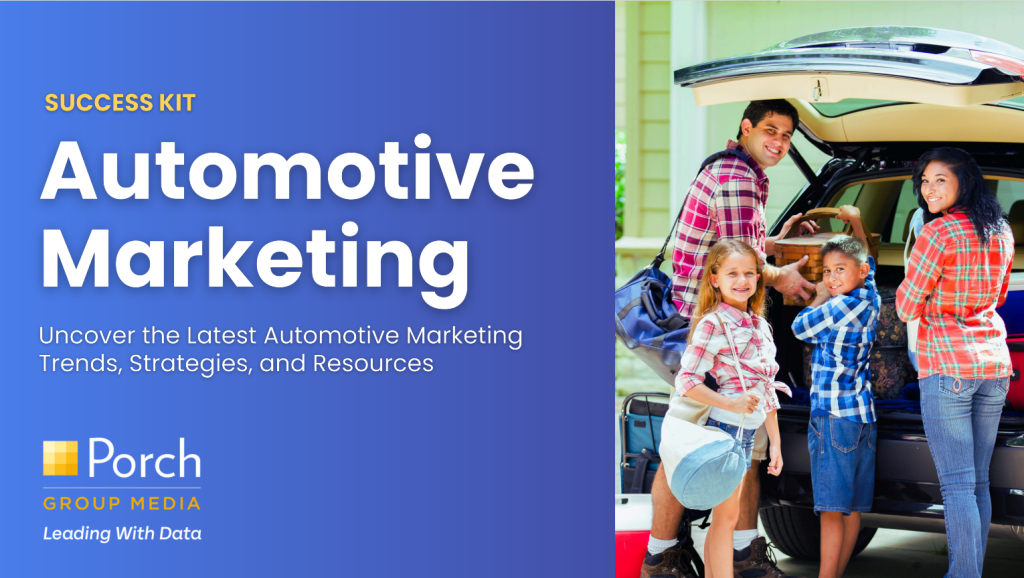Remember when having the best billboard, the largest inflatable gorilla, or the best selection of inventory was enough to get consumers heading into your dealership?
This is no longer the case as new digital channels and changing consumer expectations have transformed the marketplace. Consumers have more options, do more research, and expect a seamless experience across channels before they will even consider stepping onto your dealer lot.
No matter the industry, dealerships included, companies need to know their current and prospective customers and deliver a highly personalized experience.
This requires data, lots of it, and the technology and analytic capabilities to analyze these insights to deliver targeted messaging across the right channels and at the right time.
What Do Consumers See as the Ideal Customer Experience?
Research by Economist Intelligence Unit revealed that the top five areas consumers identified as leading to a positive experience included:
- 47% – Fast response to inquiries or complaints
- 46% – Simple purchasing process
- 34% – Ability to track orders in real-time
- 25% – Clarity and simplicity of product information across channels
- 22% – Ability to interact with the company over multiple channels
For dealerships, while having the ability to track orders in real-time doesn’t necessarily apply, some of the key elements that consumers do expect are quick responses to their inquiries, the ability to find information and interact with your dealership across multiple channels, and receiving a personalized and consistent experience.
When a consumer is happy with their experience, the results pay off in new customer acquisition, retention of existing customers, enhanced brand loyalty, and positive reviews and feedback. According to automotive research site Cars.com, the breakdown, by type of car, for reviews and customer feedback is as follows: used-car sales at 38%, new-car sales at 37%, and service at 24%.
According to the 2016 J.D. Power report, customers on average will positively recommend the dealership from whom they purchased their vehicle six times, with younger buyers being slightly more likely to recommend (6.2 times) than those older than 55 (5.2 times). These numbers can be improved when dealers offer an outstanding customer experience: getting 10 points on a 10-point scale in terms of experience can lead to a rise in the average of recommendations to eight positive comments.
Dealerships Must Improve the Buying Process
Autotrader’s Car Buyer of the Future study shows that only 17 out of 4002 people prefer the current car buying process. The survey, released last year, revealed four main areas in which consumers want improvements to the buying customer experience.
As stated in the Autotrader press release, these include:
- Test Drives: While 88 percent of consumers say they will not buy a car without test driving it first, the majority report that they do not prefer the way test drives are currently conducted (an accompanied test drive with a sales person). Instead, they want more convenience and less pressure while test driving, such as having the ability to test drive multiple vehicles across brands in a single place and taking a test drive with a product specialist instead of a sales person.
- Deal Structuring: Negotiating will be a part of the car buying process for the foreseeable future, and consumers indicate that they would like to see a big change in the way they go about negotiating the deal structure. Of those who liked the idea of online deal building, over half, 56 percent, want the ability to start the negotiation on their own terms—preferably online—and 45 percent would like to remain anonymous until they lock in the deal structure.
- Financing Paperwork: Nearly three fourths of consumers, 72 percent, want to complete the credit application and financing paperwork online. The key factors driving this desire are to save time at the dealership (reported by 72 percent of those who favor online paperwork) and to have less pressure while filling out paperwork (reported by 71 percent of those who favor online paperwork). A separate study conducted by Cox Automotive in 2014, showed that the time buyers spend in the F&I office averages at 61 minutes, more than two thirds the total amount of time they want to spend at the dealership (90 minutes). Moving paperwork online and enabling consumers to complete it on their own time would greatly enhance the in-dealership experience and cut down on the time they spend in the dealership on the day of purchase.
- Service: When it comes to servicing their vehicles, 83 percent of consumers indicate that they would like to have the ability to access a network of local service centers that honor service agreements. The key factor driving this desire is convenience. Of those who prefer local service networks, 76 percent want to go to a service center close by, and 63 percent want to be able to service the vehicle anywhere.
If the buying process was improved, 72% of consumers stated they would visit dealerships more often, 66% said that they would be much more likely to buy from a dealership that offers their preferred experience, and 53% stated they would buy a vehicle more often.
Data-Driven Customer Experiences
Optimizing each engagement with your dealership plays an important role in the overall experience, whether it is revamping the test drive process, streamlining paperwork, or offering popcorn and snacks while your customers are waiting for service. However, each of your competitors can offer the same amenities so once again, you are challenged to set yourself apart from the competition. At the heart of a truly excellent and differentiated customer experience is data. Using data-driven insights to deliver highly personalized messaging and interactions has a huge impact on the brands and companies a consumer ultimately chooses to do business with.
You already have a wealth of available data in your CRM, website inquiries, customer service records, browsing history, and more. By integrating each of these sources and adding additional third-party insights, you have the opportunity to deliver highly relevant communications to increase acquisition and boost retention.
For example, data such as age, income, and gender helps you decide what messaging will resonate with your audience. Information on lifestyle, interests, and hobbies can tell you if you should market a minivan to parents with young children or an SUV for lovers of the outdoors. Automotive marketing data can provide insights into the type of vehicle your prospect is currently driving, such as make, model, and year.
Consumers constantly leave clues as to who they are, what they like, and what they’ll buy next. When these insights are gathered and analyzed, you have the opportunity to personalize your outreach and target new customers before the competition may even be aware that they are in the market or what may influence them to purchase. And with 86% of consumers stating that personalization plays a role in their purchasing decisions (Infosys), taking the time to develop a personalized customer experience will pay off every time.
Download Porch Group Media’s Automotive Marketing Success Kit – full of articles, podcasts, webinars, and case studies to help you navigate today’s new economic landscape so your dealership can thrive and maintain growth.






